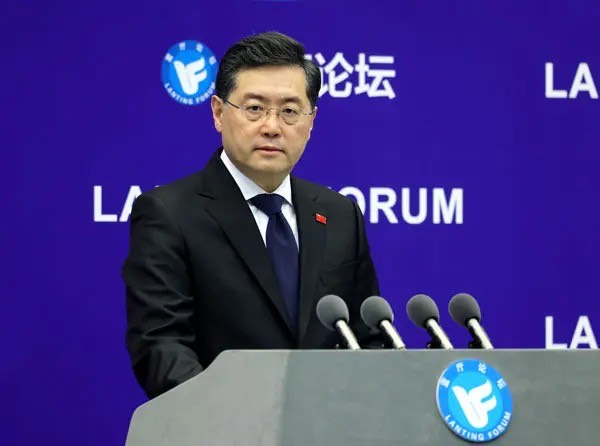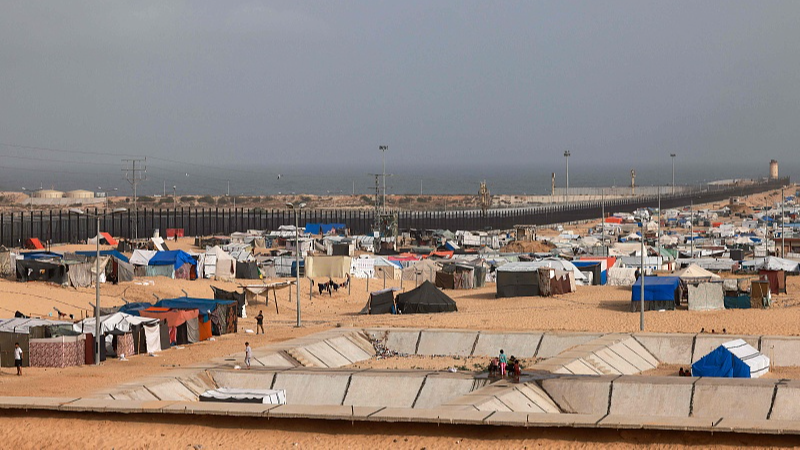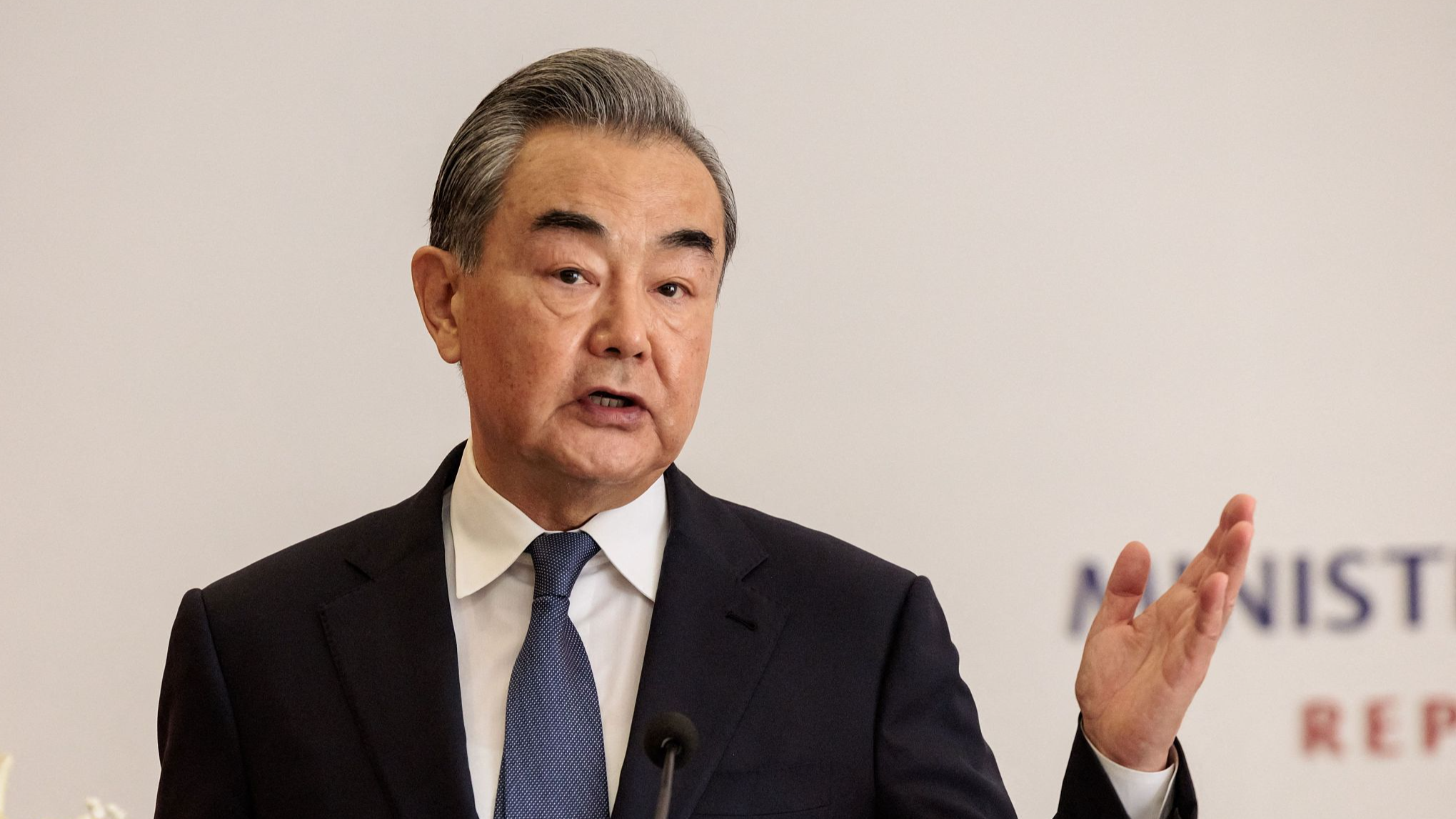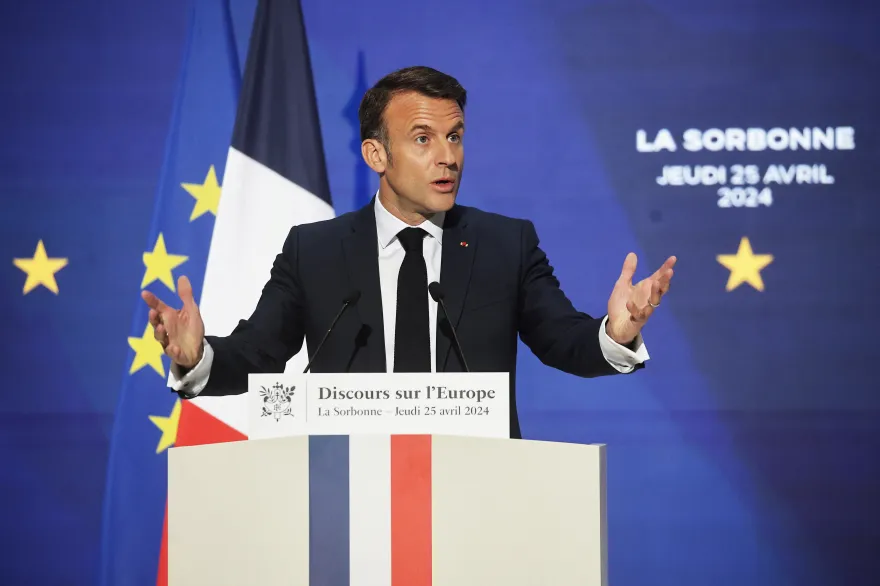Keynote Speech by H.E. Qin Gang
Minister of Foreign Affairs of the People’s Republic of China
At the Opening Ceremony of
The Lanting Forum on the Global Security Initiative:
China’s Proposal for Solving Security Challenges
Beijing, February 21, 2023
Your Excellency Ban Ki-moon, Former Secretary-General of the United Nations,
Your Excellency Danilo Türk, Former President of Slovenia,
Diplomatic Envoys,
Distinguished Guests,
Friends,
It gives me great pleasure to meet friends old and new in Lanting. Let me begin by extending a warm welcome to you all.
Security is a major issue bearing on the world’s future and survival of humanity. The world today is not a tranquil place: changes unseen in a century are fast evolving, major-country competition is intensifying, geopolitical conflicts are escalating, the global security governance system is woefully lagging behind, and traditional and non-traditional security threats keep flaring up. All countries are confronted by multiple risks and challenges rarely seen in history, and human society faces multiple security dilemmas like never before.
What security concepts does the world need? How can countries achieve common security? These are the questions of this era facing us all. The choice made by China is clear-cut. President Xi Jinping proposed the Global Security Initiative (GSI), which upholds the vision of common, comprehensive, cooperative and sustainable security, pursues the long-term objective of building a security community, and advocates a new path to security featuring dialogue over confrontation, partnership over alliance and win-win over zero-sum. The GSI embodies the core tenets in the vision of a community with a shared future for mankind, and has been warmly received by the international community upon its introduction. Over 80 countries and regional organizations have expressed their appreciation and support.
Today, China officially releases The Global Security Initiative Concept Paper. The concept paper expounds the core ideas and principles of the GSI, identifies the priorities, platforms and mechanisms of cooperation, and demonstrates China’s sense of responsibility for safeguarding world peace and firm resolve to defend global security. The concept paper lays out 20 priorities of cooperation, all highly action-oriented, and they could be summarized as follows:
Upholding the UN’s central role in security governance. The authority of the UN should be safeguarded. The UN should be supported in its efforts to prevent war and conflict, develop the peace-building architecture and promote post-war reconstruction, and in playing a bigger role in global security affairs.
Promoting coordination and sound interactions among major countries. Major countries should take the lead in upholding equality, cooperation and the rule of law. Hegemonic, bullying and domineering practices should be rejected, and joint efforts should be made to build a framework of major-country relations featuring peaceful coexistence, overall stability and balanced development.
Facilitating peaceful settlement of hotspot issues through dialogue. Support should be extended to the parties involved to settle their disputes and differences through dialogue and consultation. The international community should speak up for justice, cool down hotspots and deflate tensions.
Tackling traditional and non-traditional security challenges. It is important to promote global strategic stability, oppose arms race, and defuse nuclear war risks. Combined efforts are needed to fight COVID-19, combat terrorism, and safeguard data security, bio-security and the stability of supply and scientific and technological chains.
Strengthening the system and capacity for global security governance. A security governance architecture featuring coordination among governments and international organizations and participation of non-governmental organizations should be developed. China will hold a high-level event on the GSI at a proper time to discuss with all parties ways to promote security.
Friends,
Security is a right for all countries. It is not a prerogative of some, still less should it be decided by any individual country. The GSI intends to serve the interests of all and protect tranquility for all. Its advances need the unity and cooperation of the international community. In implementing the GSI, China advocates the following five principles:
First, mutual respect. The purposes and principles of the UN Charter must be observed. The equality among countries regardless of size, strength and wealth should be upheld. Different systems, religions and civilizations should be treated as equals. The core interests of all countries and legitimate security concerns of all parties should be respected.
Second, openness and inclusion. The GSI targets no particular country, and excludes no particular party. All countries are welcome to join in the GSI if they so wish; and all efforts for global peace and development will be supported.
Third, multilateralism. Bilateral and multilateral security cooperation should be pursued among countries around the world and international and regional organizations in line with the principle of extensive consultation, joint contribution and shared benefits. Issues that matter to all should be addressed by all. Greater synergy should be forged among various security visions to seek the greatest possible common ground.
Fourth, mutual benefit and win-win. The principle of indivisible security should be followed. One’s own security and the common security of all should be advanced side by side, by pursuing win-win cooperation that contributes to each other’s progress, and opposing zero-sum game that benefits oneself at the cost of others, to expand the converging interests among all.
Fifth, a holistic approach. Security governance needs to be advanced in a coordinated manner, and traditional and non-traditional security threats should be tackled in a holistic way. Equal emphasis should be placed on security and development, to eliminate the breeding ground for insecurity and seek fundamental and durable ways for achieving sustainable security.
Friends,
The GSI is rooted in the fine traditional Chinese culture that values peace above everything else, and is inspired by China’s independent foreign policy of peace and its practices. Over the years, China has held high the banner of peace, development, cooperation and mutual benefit, fulfilled its responsibility for world peace, and contributed its level best to global security as a responsible major country.
China is committed to the path of peaceful development. China has never started a conflict or war, or taken a single inch of foreign land. To this day, China remains the only country that has put the commitment to peaceful development in its Constitution. No matter how much it develops, China will never seek hegemony, expansion or sphere of influence, or engage in arms race, but remain a defender of world peace.
China is committed to the international arms control, disarmament and non-proliferation processes. China has joined over 20 multilateral arms control treaties, and firmly upheld the international nuclear non-proliferation regime. China will continue to promote international cooperation on arms control and the building of a global nuclear security architecture featuring fairness and win-win cooperation, and play its part in maintaining global strategic stability.
China is committed to meeting global challenges. China has made robust efforts to implement the Paris climate agreement, provided more than 2.2 billion doses of COVID vaccines to over 120 countries and international organizations, put forward the Global Initiative on Data Security and the International Cooperation Initiative on Global Food Security, and promoted the establishment of the Global Clean Energy Cooperation Partnership. China will continue advancing international cooperation on counter-terrorism, disaster relief, climate change, public health, among others, combat transnational organized crime, and contribute its share to tackling non-traditional security threats.
China is committed to following a Chinese approach to resolving hotspot issues. China believes in promoting peace through talks. Guided by its emphasis on addressing both the symptoms and root causes, its call for the involved parties to meet each other halfway, and its pursuit of fairness and justice, China has made unremitting efforts for the political settlement of hotspot issues.
On the Iranian nuclear issue, China has actively promoted the resumption of the Joint Comprehensive Plan of Action (JCPOA), to uphold the legitimate rights and interests of relevant countries and the international nuclear non-proliferation regime.
On the Korean Peninsula issue, China stands for pursuing in parallel the establishment of a peace mechanism and the denuclearization of the Peninsula, and addressing the legitimate concerns of all parties in a balanced manner, to safeguard peace and stability on the Korean Peninsula.
On Middle East, China welcomes and supports security dialogues among regional countries including Saudi Arabia and Iran, as well as regional efforts to build a Middle East security architecture that suits the realities of the region and accommodates the interests of all parties.
It has been almost a year since the full escalation of the Ukraine crisis. The international community is watching the developments closely. China is deeply worried about the escalation of the conflict and a possible spiral out of control. Since the outbreak of the crisis, China has taken an objective and impartial stance based on the merits of the issue. President Xi Jinping put forward “four points” on what must be done, “four things” the international community must do together, and “three observations” of the crisis, which has played a responsible and constructive role in easing the situation and deescalating the crisis. China will continue to promote peace talks, contribute its ideas for a political settlement of the crisis, and join the international community to promote dialogue and consultation, address the concerns of all parties and seek common security. In the meantime, we urge certain countries to immediately stop fueling the fire, stop shifting blame to China, and stop touting “Ukraine today, Taiwan tomorrow”.
Friends,
The development of a big country like China cannot happen without a secure international environment. Likewise, world security would not be possible without the security of China. Today, under the leadership of the Communist Party of China, the Chinese people are making strides in confidence and unity toward the rejuvenation of the Chinese nation on all fronts through a Chinese path to modernization. However, external suppression and containment against China keep escalating, posing a serious threat to China’s sovereignty and security. We stand firmly against any form of hegemonism and power politics, against the Cold War mentality and bloc confrontation, and against any foreign interference in China’s internal affairs. We will resolutely safeguard China’s sovereignty, security and development interests, and international fairness and justice.
Friends,
Peace and security are like sunshine and rain; they are taken for granted, but none can live without them. China wishes to work with all countries in the direction set out in the GSI, and move together in unity and cooperation toward a brighter future of lasting peace and universal security.
To conclude, I wish the forum a full success. Thank you!

 News7 days ago
News7 days ago
 News7 days ago
News7 days ago
 News7 days ago
News7 days ago
 News3 days ago
News3 days ago
 News6 days ago
News6 days ago
 News6 days ago
News6 days ago
 News2 days ago
News2 days ago
 News5 days ago
News5 days ago


















